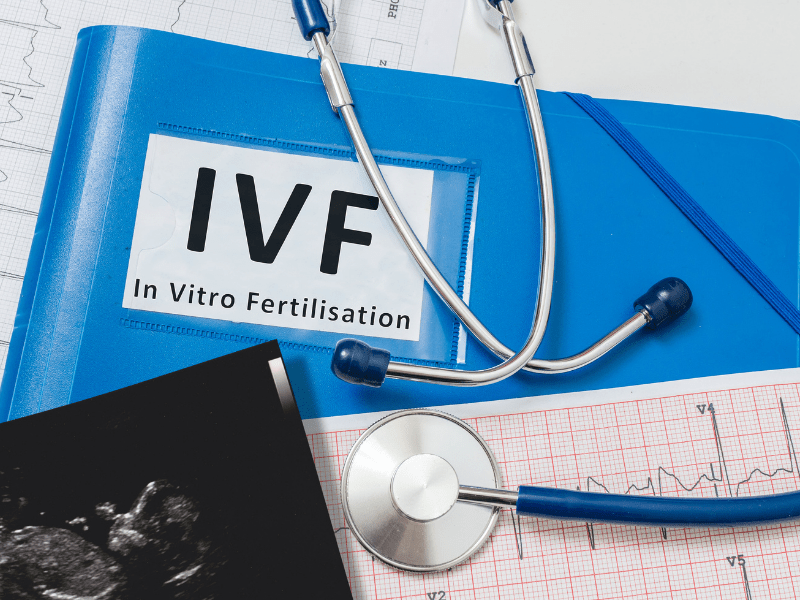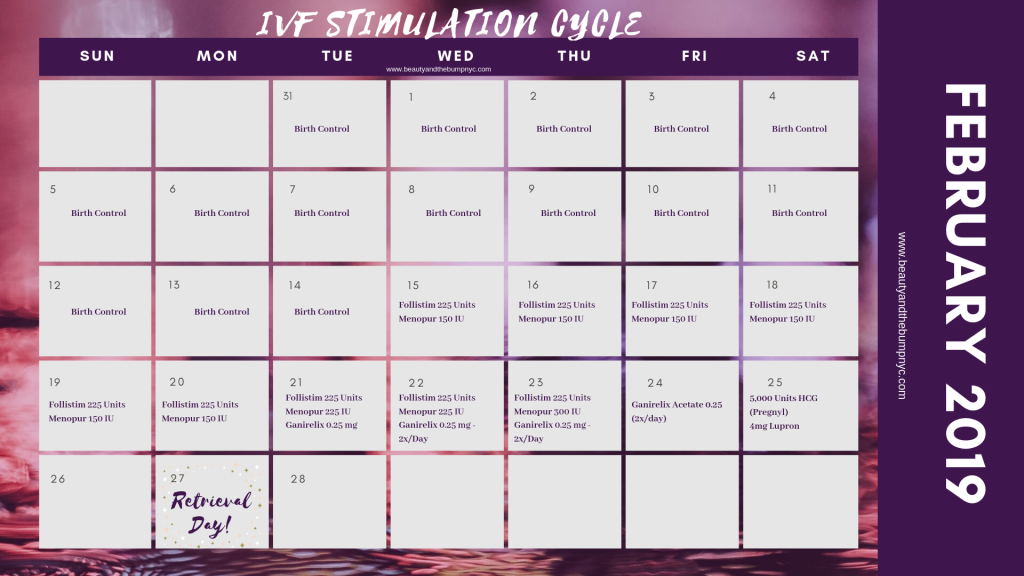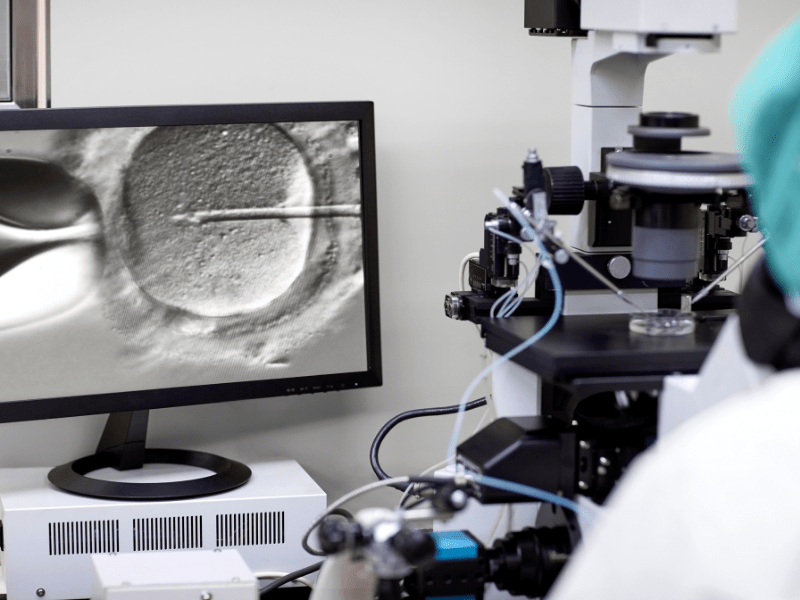Starting the process of In Vitro Fertilization (IVF) is a huge decision and should never be made on a whim. The commitment required not only of your body but of your time, energy, mental health, and finances are real and sometimes intense. Here is what you should know before starting IVF.
Related: What Is In Vitro Fertilization (IVF)

Think About Your Health
How well do you take care of yourself? Do you eat healthily? Exercise regularly? Take supplements? Maintain hydration? These may be things you want to address in the months prior to beginning IVF. Get yourself into some good habits and prepare your body as much as you can so that you have the best chance possible of a successful round of IVF.
Your Focus Will Shift
When you start fertility treatments, they require your full attention. Don’t schedule much during this time, as you will find yourself canceling or rescheduling repeatedly. You will have a lot of early morning appointments (hopefully before work), but some may be during the workday and may last a few hours, so you may want to look into taking some time off work, depending on how things are going.
Organization is Important
If you don’t keep a paper calendar, you may want to consider it. Keep all your appointments and injection and medication information readily available and clearly written out. Set alarms in your phone and be sure to lay out the plan well ahead of time so that you know your schedule.

Self-Injections Aren’t All That Bad
Self-injections may sound ominous, but know that the needle used is more like what diabetics use for insulin. Depending on the type of injections your doctor prescribes, it can be a small needle that is used to inject the medication just beneath the skin. It can also be a long needle used for injecting the medication intramuscularly. If you’re afraid of needles, both may sound scary, but it isn’t as bad as it seems. If your partner is unable to help, don’t psych yourself out about it. Talk to your doctor. Their office may be able to accommodate you for injections.
Timing is Everything
Timing is extremely important with IVF. Make sure you’re prepared with the medications you need when you need them. Talk to your insurance company, your pharmacy, and your doctor, and be ready well ahead of time to cut down on unneeded stress.
Related: Making Baby #2: My Frozen Embryo Transfer Cycle Protocol

You, Will, Ride an Emotional Rollercoaster
Fertility medications are intense. Your hormones will be all over the place. If you have ever experienced a rough round of PMS, you know what you can expect. You may feel completely out of control of your emotions, reactions, and mood.
Related: Making Baby #2: My Frozen Embryo Transfer Experience
Your body will likely change, too. Between the bloating, cramping, breast tenderness, and potential weight gain, you may not feel like yourself, but hopefully, your body is preparing you for pregnancy!
The Egg Retrieval Procedure is Low-Key
The actual egg retrieval shouldn’t scare you. It may be your first medical procedure, but it is extremely low risk, you will be given pain medication, the procedure itself will only take up to 30 minutes, and you’ll go home after allowing the sedation to wear off for about an hour.
The uncertainty of how many eggs may be retrieved, the quality of the eggs, or how your body will respond to the procedure may give you a range of emotions from fear to excitement. The only thing you can really do is prepare to relax as much as possible.

Plan for Post-Egg Retrieval
While the procedure itself isn’t time-consuming, the recovery can be. Prepare to take it easy, at least for a few days. Plan to take at least a few days off work. Prior to the egg retrieval, try to make sure you are caught up on housework (such as laundry and cleaning) so you can truly relax.
Make low-sodium meals or snacks ahead of time and have lots of healthy options available. Having over-the-counter pain medications on hand to combat any cramping and stocking up on bottled water and drinks high in electrolytes will prepare you for your recovery, too.
Also, be aware that Ovarian Hyper Stimulation Syndrome (OHSS) may or may not affect you, but you should be prepared with symptoms to watch for:
Normal Symptoms Following Egg Retrieval:
- Light vaginal bleeding or spotting
- Mild, lower abdominal cramps, similar to ovulation cramping
Abnormal Symptoms Following Egg Retrieval:
- Fainting
- Shortness of breath
- Heavy vaginal bleeding
- Severe pain or swelling in your abdomen
- Fever at or over 101
- Nausea or vomiting
- Difficulty urinating
- Swift weight gain (1-2 lbs per day)
If you experience any of the above abnormal symptoms, be sure to contact your doctor immediately as they may be signs of OHSS and you need immediate treatment.
Embryo Transfer
This process, like egg retrieval, is normally low-key and virtually pain-free. Once an embryo is successfully transferred, however, you will have around a two-week wait before you will find out via blood test if you are still pregnant. This wait can be a mentally excruciating time when you’ll likely still be taking supplements and giving yourself injections.
Find Your Support
It is extremely important to have familial support as well as a friend to support you through the entire IVF process. You may want to explore additional support options as well. Ask your doctor how you can connect with IVF support groups. The internet supplies a huge outlet for support, always at the ready. Meeting others in person who may also be experiencing the same process could be very beneficial to your mental health.
The Expense is Real
It can cost up to $10,000 to do one round of IVF. Be sure to check with your insurance company to see if your drug plan can help cover expenses or even if they will cover one round. Every little bit helps! If insurance isn’t on board, many clinics will assist you in arranging the finance and payment plans.
Be sure your partner is on the same page as far as finances go! You don’t want to have financial hardship added to your stress during IVF.
IVF may not work the first time… or the second.
The success rate for IVF working the first time tends to run around 30%. This doesn’t mean it isn’t worth it! It just means that you may have to try more than once. The highest success rate for IVF tends to occur in six cycles. So don’t give up or let it get you down if the first round is unsuccessful.

Ask ALL Your Questions
No matter how silly you feel, it’s imperative that you know what’s going on during IVF! If there’s something you need clarification on, don’t hesitate to ask. Whether you ask your doctor or your support people, find answers so that you can relax and have a firm grasp on what you’re doing and what is happening to your body.
It is extremely important to be well informed before beginning IVF. Do the research, discuss it with your partner, seek outside support, and find a doctor you respect and are comfortable with. It may sound like an intimidating process, but the potential results are well worth all the effort. What would you like to share about starting IVF?
